- Home
- Michael Duffy
The Simple Death Page 2
The Simple Death Read online
Page 2
Austin stood up and said, ‘This is where Governor Phillip got speared.’ He pointed to the sand along the cove.
‘Interested in history?’ said Troy. He’d been reading The Fatal Shore, it helped fill in the long nights since Anna had left, found it fascinating. He wasn’t a reader so this had surprised him. Austin looked away, said nothing, tapped his hands on the rail.
Troy knew the story anyway. Sydney’s founding governor had been impressed by the indigenous men of the area and called it Manly. One day he’d come up the harbour for a chat, found them feasting on a beached whale. Normally he had good relations, but this time he’d received a spear in the shoulder. Troy mentioned these details to Austin, and the guy stood up a bit straighter, a big smile breaking his face in two. He started to nod, so vigorously it looked kind of funny. Troy wondered if he was on the gas.
‘Phillip wouldn’t let his blokes retaliate,’ Austin said with fervour, as though he’d been told about it by someone who was there. ‘Gets back into his boat and they head towards civilisation.’ Troy smiled politely, which seemed to make Austin happy. ‘They wanted to pull the spear out, which’d be kill or cure, but he wouldn’t let them until he’d sorted out his stuff, signed a few official documents.’ Troy hadn’t heard that part of the story before, hoped it was true. He was a public servant himself. ‘Then out she comes.’
‘He didn’t die.’
‘Must have fucken hurt, but.’
The ferry had stopped and the big ramp next to the exit was lowered to the ground. Austin’s eyes were gleaming, and Troy thought it was not just the story but something else. Not speed, though. Whatever Austin was feeling seemed to be coming from inside his head. Maybe the attention he was getting, the police respectful of him, was having a good effect. The gates had been opened and people began to pour off the ferry.
‘You stick with us, Jim,’ Troy said. ‘We’ll go get some food, have another chat. That okay?’
‘Sure thing, Mr Troy.’
Troy stopped feeling happy. Sam had always become polite just before he went off.
He reached out to grab Austin, but it was too late. The passengers were all around them now, more than he had imagined, converging from multiple directions on the exit. He wished he’d told the others to hold back until the ferry was empty, but the crowd of people in their bright clothes was packed and pushing, keen to get off. It was years since Troy had done crowd control, he’d forgotten how volatile a large group of people could be.
He said to Rostov, ‘Keep an eye on him.’
‘I reckon we’ll have trouble getting rid of him,’ the big detective said, his breath sour with the smell of vomit. ‘The bloke’s having the time of his life.’
Maybe he was right. Troy could still see Austin, on the wharf five metres away and staring around him with the open inquisitiveness of a child, then heading off to his right with the crowd.
‘There’s Jon McIver,’ Conti said as they followed. The sergeant was on the edge of the brightly dressed crowd, wearing a dark suit and white shirt, his face pale. ‘He looks like an undertaker.’
‘You think so?’
Some people in the crowd moved and they had a better view of McIver. He had longish hair and sideburns, and his tie was deep blue and narrow. Troy knew he was probably wearing boots too, although Conti could not see that.
‘Maybe not an undertaker,’ she said. ‘But he could really do with a haircut.’
‘Are you going to tell him?’
She grinned. ‘You don’t think I would, do you?’ Then, looking at his left hand, ‘I thought you were married.’
He’d worn the ring for two months after Anna left, took it off when he learned she’d gone back to India without telling him, taking their son with her. Turned out it was only a holiday, but the ring had stayed off.
‘I was,’ he said. The Tower investigation, the one he’d worked with Conti, had changed a lot of things.
She said, ‘The sarge’s got over being shot?’
‘As far as I know.’ He hadn’t worked with Mac since then, had had other OICs who weren’t as good. But Mac and he talked. He looked around. ‘Where’s Austin?’
Austin was no longer visible. When they reached McIver, Troy introduced Rostov, gazing around as he spoke. McIver shook hands with the others and looked at Troy, indicated the row of restaurants outside with his chin.
‘That your bloke?’
Austin was almost a hundred metres away, off the concrete and on the smaller wharf made out of grey wooden planks. Troy ran after him, onto the wide footpath past the restaurants, and saw him reach the end of the wharf and keep going. In a second he was down on the small floating platform where the TV crew’s speedboat was moored.
As Troy ran to the end of the wharf, he heard the boat’s motor start up. By the time he got there, Austin was standing in the boat with one hand on the throttle and the other pulling a rope on board. He saw Troy and waved, then twisted the throttle. The boat jumped away from the dock. It was all ridiculous. Austin wasn’t even a suspect, and if he did want to escape, there were better ways. Troy yelled to the police boat nosing around the moored yachts at the top of the cove, pointing at Austin’s vessel. But the two men on board were looking in another direction, and when they noticed Troy a minute later they just motored up casually. When they reached the wharf he jumped in.
‘Can we catch that boat?’ he said. ‘If you haven’t got anything better to do?’
‘Keep your hair on,’ muttered the senior constable, who’d introduced himself as Stephen Briggs.
‘Don’t tell me,’ said Troy as the boat accelerated. ‘You’d rather be fishing.’ For most of his life he’d contained his anger, but lately he’d been letting it out. It seemed to help.
Austin knew what he was doing: maybe he really had been a lifesaver. The boats’ top speeds were about equal, but Austin’s craft was smaller and more nimble. As well as this, he didn’t seem to care what happened. First he executed a number of tight circles, allowing them to catch up and almost clipping the police boat. Then he swerved towards the shore and ran the boat through some shoals where the police didn’t dare follow. Finally, he shot out into open water, where a big freight ship was moving towards the heads accompanied by two tugs. The small boats jumped up and down as they hit the swell, and Troy was glad Rostov wasn’t with them. The police boat’s propellers were in and out of the water, making its progress uneven, but gradually they gained on Austin.
‘What’s the point of this?’ yelled Briggs. ‘We’ll catch him in the end.’
Troy shrugged.
The container ship was close now, like a steel wall between them and the eastern suburbs on the far side of the harbour. You had to be unlucky, to encounter a freight ship on Sydney Harbour these days. Troy wondered what Austin had in mind: he was heading straight at the middle of the ship, and the police boat slowed down. Maybe Austin hadn’t witnessed Pearson being thrown off the ferry. Maybe he’d done it himself, and this was his way of dealing with the thing, by killing himself.
At the last moment he swerved to the left and raced up to the bow, veering once in its turbulence so that his boat struck the side of the ship and bounced off. Then he was at the bow and somehow made his way around the front of the freighter with metres to spare. Briggs was shaking his head as he pulled away and ran up the side of the ship, turning around the bow only when they were well clear. The manoeuvre took a while, and Troy gripped the side of the boat impatiently. When they reached the other side, Austin was only just visible in the distance, slipping behind an island in the direction of the city. Briggs put on some speed and Troy sat down.
They travelled up the harbour towards the city towers, past the naval base at Garden Island, then weaving their way through the ferry traffic off Circular Quay. Briggs’s partner had been working the radio, and a police helicopter appe
ared, hovering over the speeding boat. It rose up as Austin, only two hundred metres away now, took his boat through the broad, cool shadow beneath the Harbour Bridge. They followed him and he turned left.
‘He’s going to Darling Harbour,’ Briggs yelled. ‘We’ll get him now.’
Troy told them to get some vehicles there and stood up, watching as Briggs closed in. Darling Harbour, lined with flats, public buildings and the big retail centre, was a dead end.
As they reached the busy tourist precinct Austin headed for the marina on the left, with the city’s concrete escarpment rearing above it. But just before he touched, a police car appeared at the marina, its siren and lights on, and he turned away and raced towards the end of the small harbour. The police car backed up, looking for an access road and not finding one. Troy could see no other police around the harbour, and Austin brought his boat alongside a low wall and jumped off. Briggs accelerated towards the spot, but Troy knew Austin was going to make it. He felt a moment of sympathy, wondered where that had come from, pushed it away. Austin looked at them and gave a thumbs-up, to the helicopter too, and then headed off, jogging towards the stream of pedestrians. The stream flowed into the rivers of people in the crowded streets nearby. A moment later Troy lost sight of him. Jim Austin, from being a man he could reach out and touch, was now just another of the city’s four and a half million people.
Two
Back at Manly Police Station, the investigation had acquired a name: Strike Force Furnace. For the moment they had a small room that could just fit the four detectives plus two plain clothes officers.
‘So you’ve inspected the crime scene?’ Mac said. He hadn’t said anything about Troy losing Austin, which was unusual. But then, Troy had heard McIver was off his game lately. This was unsettling: Mac was one of the fixed points in his life. ‘There’s a wall around the deck,’ he said. ‘You could tip someone over if you were strong enough and they weren’t paying attention.’
‘Could they fall?’
Troy shrugged. This was the thing: inside Pearson’s bag they’d found a syringe and a small box of ampoules of pethidine. The syringe had been used. ‘The wall’s lower on the upper deck at one or two places. You could fall, maybe. Or jump, that’d be easier. They have a few suicides each year.’
‘The ampoules have batch numbers?’
Conti nodded. ‘The manufacturer put us onto the wholesaler who took all that batch.’
‘This is helpful?’
‘The batches are huge, this one went out to five hospitals. One was St Thomas’.’
‘You’ve had them printed?’ McIver said.
Conti set her lips, looked at Rostov. Some history there.
‘No,’ he said.
‘Do it. Emily Nguyen knew about the drugs?’
‘No,’ said Rostov. ‘Neither did his parents or his GP.’
McIver drummed the fingers of his left hand on the desk. ‘We’d be thinking they came from the hospital?’ Rostov nodded; there was no illegal market in pethidine because it was so hard to get. ‘What about CCTV?’
‘It’s only partial at either end,’ said Rostov. ‘The Quay shows Pearson and Austin arriving at the right time on Thursday night, no obvious connection between them. Austin’s coming from the direction of the railway station just like he said. At this end we see Austin getting off.’
‘Cameras on the boat?’
‘They feed to screens in the wheelhouse. No one noticed anything and there’s no record kept.’
‘Does Austin’s story make any sort of sense? How could no one have seen this happen on a Thursday at quarter past nine?’
Rostov again: ‘The crew say weekday nights are quiet, except Friday. The lights were out in the section of the cabin where Austin says he was lying, some electrical fault—supports his claim he was there. They did their normal white-level security check towards the end of the trip, missed Pearson’s bag, it was stuffed down behind a row of seats. Cleaners found it later.’
McIver picked up the photograph of Mark Pearson from the table. It showed someone who looked older than thirty, keen, serious eyes and a determined mouth, already half bald as though eager to grow older. He seemed born to wear a suit.
‘What did he do?’ asked one of the detectives.
‘Hospital ombudsman,’ McIver said. ‘Dealt with complaints from patients and their families.’
Troy said, ‘Doesn’t look like the sort to have accidents.’
McIver shrugged. ‘But do we trust Jim Austin?’ He stood up. ‘I’ve got a meeting with the super here to talk accommodation.’
‘So we’re taking this seriously?’ said Conti.
‘Until further notice.’
A general alert was out for Austin. Parramatta would be checking his usual haunts in case he returned. McIver allocated tasks for the next few hours: Rostov and Conti would visit St Thomas’ Hospital, talk to Pearson’s boss and colleagues; the plain clothes would obtain what extra CCTV they could; Troy and he would see Emily Nguyen at two.
When the others had left, he said abruptly to Troy, ‘Anna come to her senses yet?’
McIver knew Anna, knew what had gone wrong between them. But Troy hadn’t seen him for the past few months, because Mac had been away on a job up at Coffs Harbour. He explained she was still in Brisbane. When she’d walked out he’d assumed it was temporary and had hired an architect to design the extension to their house they’d been talking about. He’d sent the plans up to her as a sort of gift. And then, without telling him, she’d taken Matt to India.
‘I wondered if they were coming back,’ he said.
It had been bad. He’d chided himself for marrying someone from a different culture, had thoughts of Matt all the time, for weeks he’d had trouble sleeping. After a month they’d returned and things had improved. Anna and he talked on the phone every few days now, sometimes good conversations. But it wasn’t going anywhere.
‘You think she’ll go back for good?’ Mac said. ‘To India?’
Troy shook his head. If anything, the trip had turned her against the place; she’d talked of the violence, the constant delays and security checks, the blanket of filth over every patch of ground, every waterway. Blokes pissing in the streets, in the middle of the city men in suits just stopping in front of you and undoing their flies. Anna and he had been there on their honeymoon, he’d thought it bad then. She said it was worse now.
‘So it’s okay,’ McIver said, ‘she’ll come to her senses?’
That was what friends said, but Troy couldn’t see it. For a while he’d been hopeful, but that was fading.
‘It’s been four months.’
She still hadn’t told him what she thought of the extension plans.
Three
Lunchtime, Troy wandered down to the beach and stared at the vast line of bright sand stretching north. There was an old tourist poster on the wall of the station meal room: Manly, seven miles from Sydney and a thousand miles from care. He turned and gazed up the hill to the old building that for a long time had housed the seminary that produced Sydney’s priests. He’d been there once, to a function, with Luke Carillo, the priest who’d sort of taken him in after his parents died when he was fourteen. Luke, in his sixties now, was the friend who was dying of lung cancer in the hospice at St Thomas’. He was unhappy to be there, far from his parish at Campbelltown in the city’s south-west. But the Church had started the Charity Hospice over a century ago, and still had a lot of say in the place. It was where they sent their priests when the time came. And at least, as Luke had told him last night, they understood pain management.
‘The cancer quacks were always trying to save me,’ he said, referring to his time in hospital. ‘This lot here, they accept it’s all over.’ It seemed to mean a lot to him.
Troy walked along the path by the beach, thinking about Au
stin and then Sam. Luke had introduced him to Sam, who’d done some boxing back home in Walgett, heard about the Sydney priest with a gym in his backyard. The two boys ended up living in the presbytery, an old two-storey place near Liverpool that was its own small community. Apart from them there’d been a few homeless men who’d come and gone, the occasional woman and kids on the run from a violent husband, and the housekeeper. Only much later had Troy realised what an unusual set-up it had been.
Troy remembered the housekeeper. Brigita was a single mum with blonde hair that was almost white and a ten-year-old son named Tim. She was in her late twenties and didn’t have much to say, but she was easy to be with. Troy recalled good times in the kitchen, just sitting while she cooked, not saying much. She’d been attractive, sensual despite the baggy clothes she always wore.
Sam had been caught watching her in the shower, through a hole he’d made in the wall. Troy had been interested in sex too, but Sam’s concerns were far more urgent, as though his body was running to a different timetable. The second time he’d been caught, Luke threw him out. Troy never saw him again, but he remembered him a lot better than many people he’d known since.
He looked up at the big sky, half obscured now by the fronds of the tall palm trees along the path, and rubbed his forehead. The problem with Luke was, he wasn’t only dying of cancer. He’d been accused of abusing a boy at a youth camp many years ago. The accusation had been published yesterday, in one of the Sunday papers. For the past twenty-four hours, Troy had been confused, it was like having your father blamed for something monstrous he couldn’t possibly have done. Whenever he thought about it, the thing would just go round and round in his mind. He wondered if that was why he’d lost Austin, not trying to make an excuse but it wasn’t the sort of thing he’d usually do.
The accusation against Luke came back into his mind and he shook his head, trying to make it go away for a while. It didn’t seem possible, not on a bright hot day like this, everything so clear and pure. Sydney could be deceptive like that.

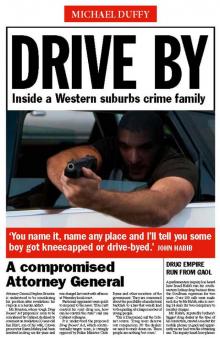 Drive By
Drive By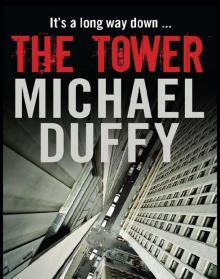 The Tower
The Tower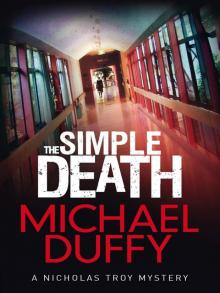 The Simple Death
The Simple Death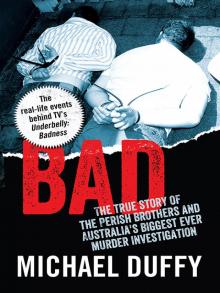 Bad
Bad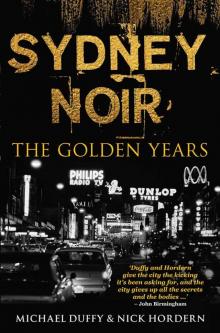 Sydney Noir
Sydney Noir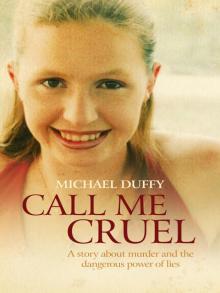 Call Me Cruel
Call Me Cruel